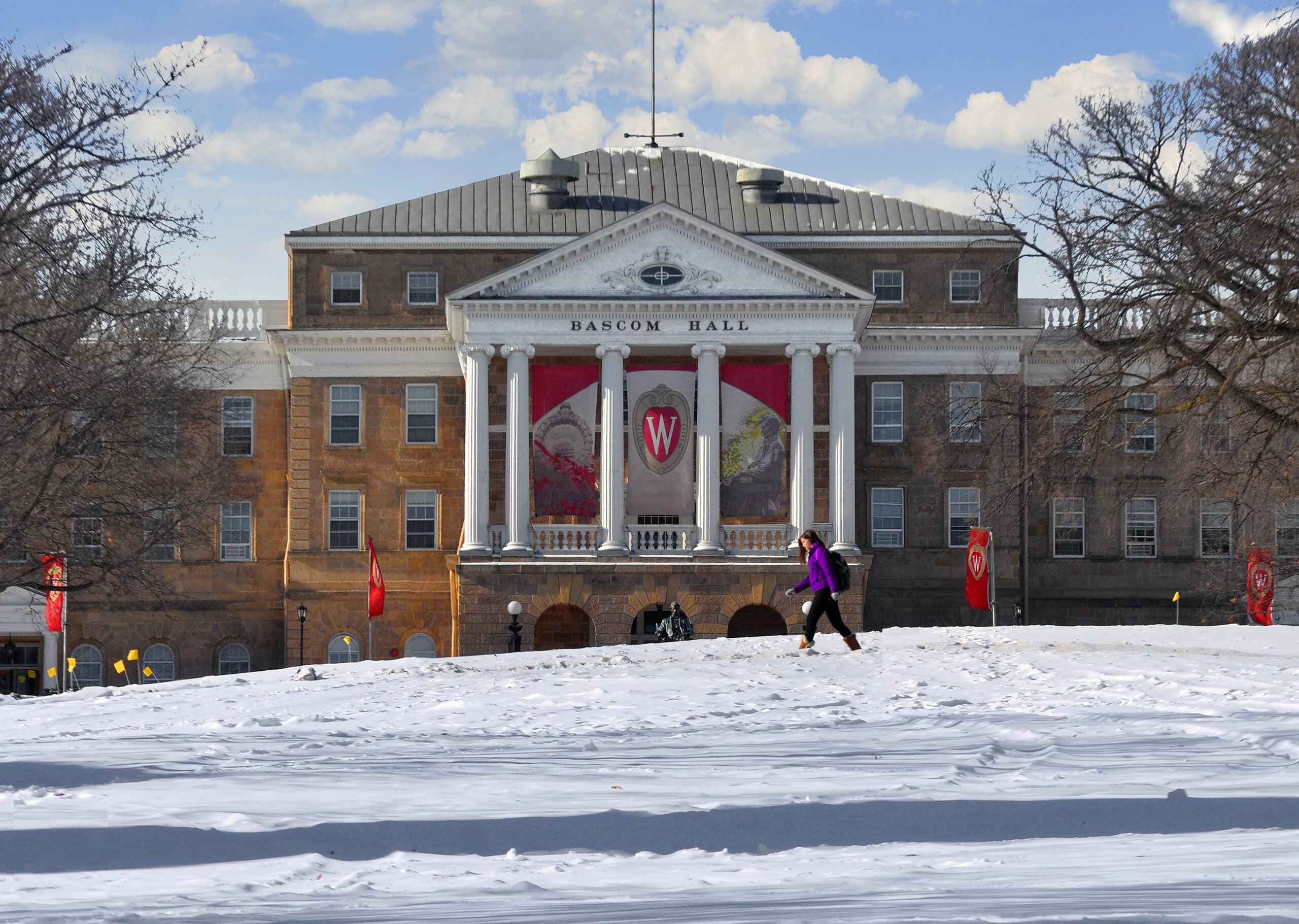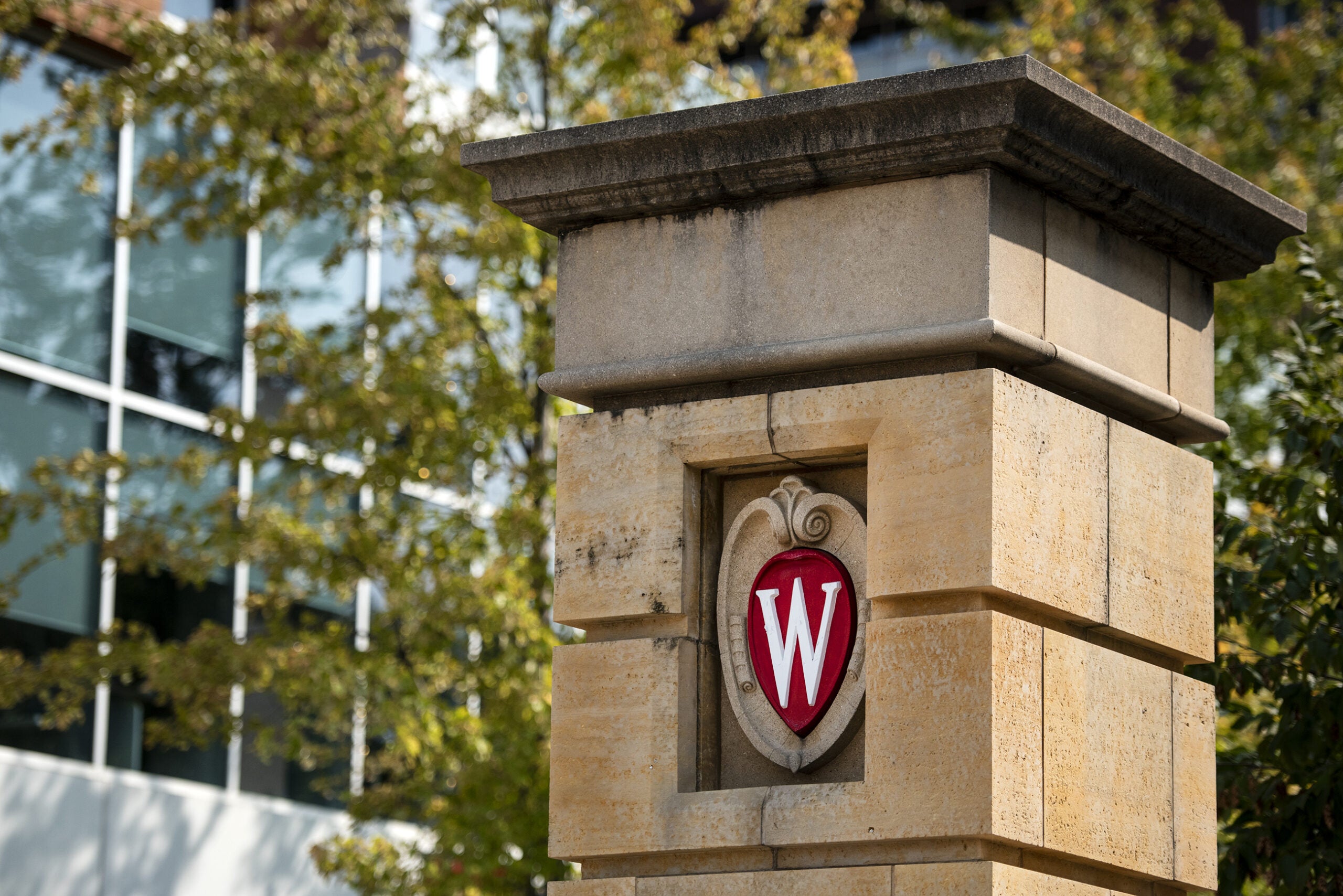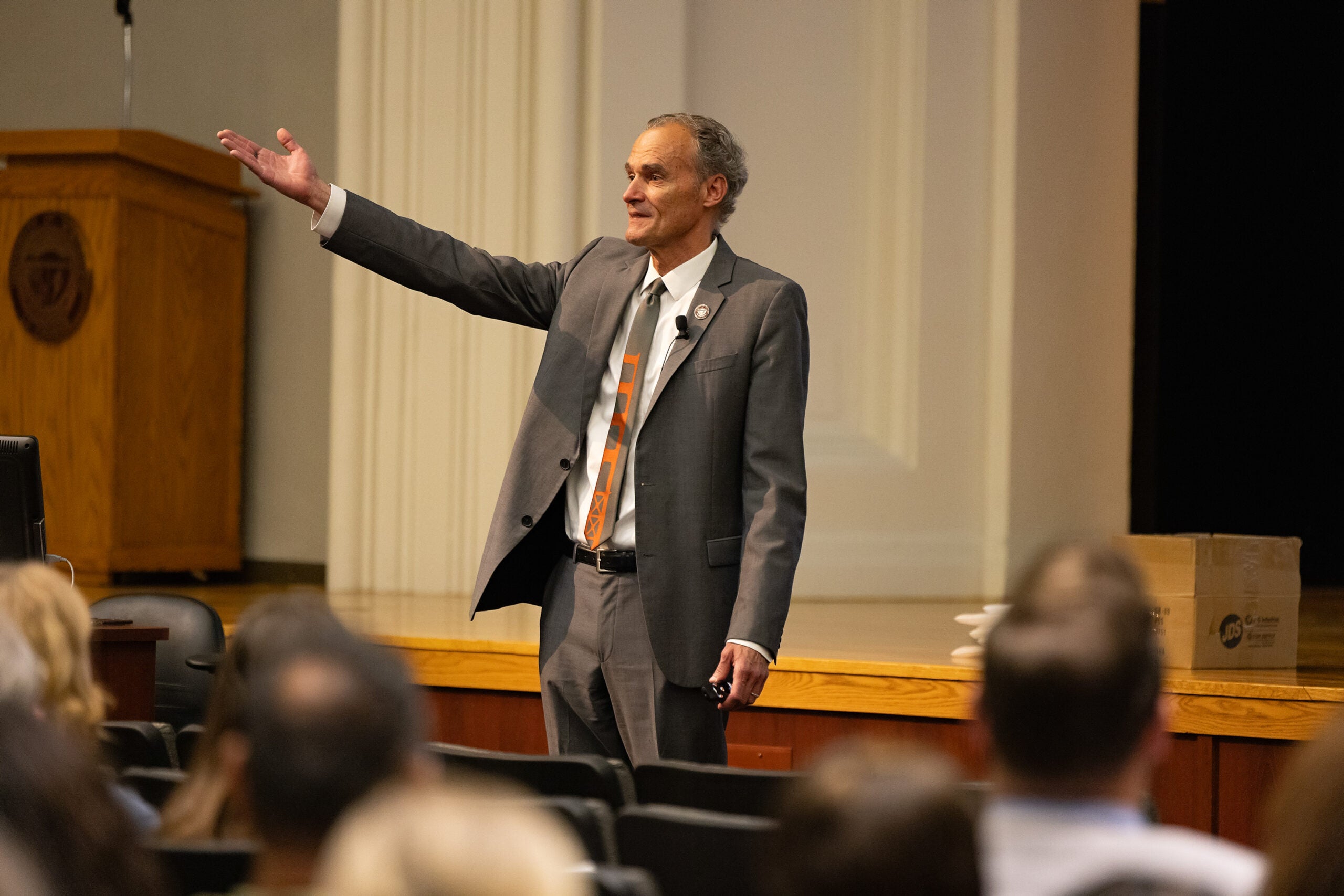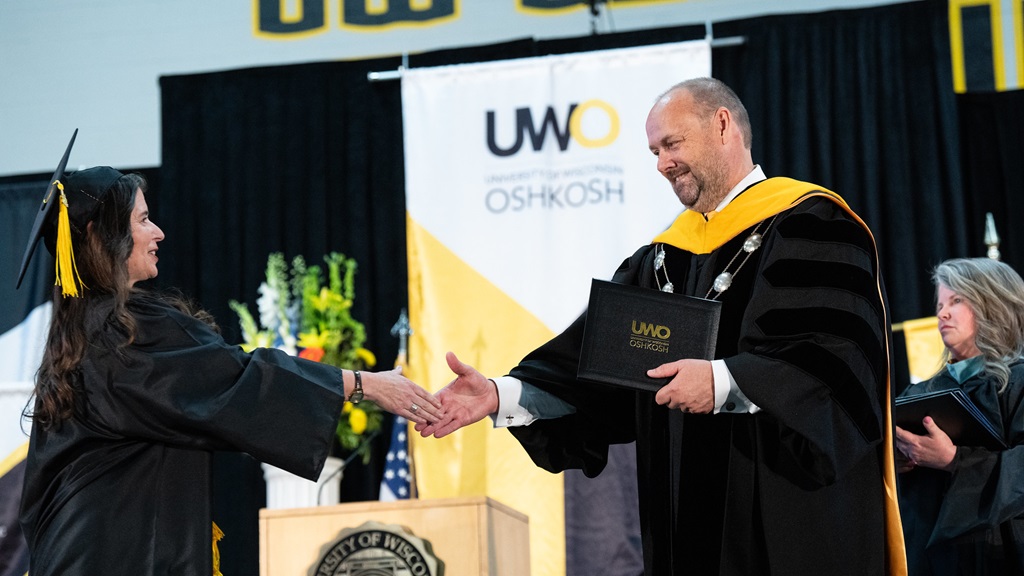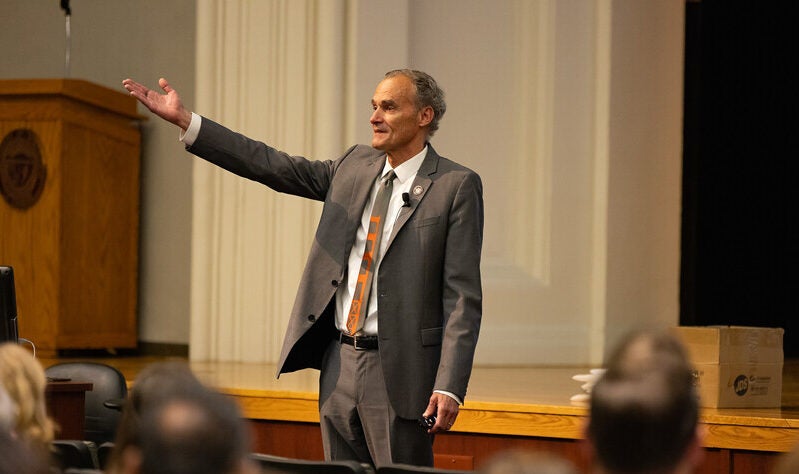Ray Cross; Temple Grandin
Featured in this Show
-
Ray Cross
Transformation: That word may best describe what UW System President Ray Cross wants to bring to Wisconsin higher education.
Cross was appointed earlier this year by the UW Board of Regents to become the seventh president in the UW System’s history that dates back to October of 1971. Cross says while university systems were created to help manage resources, he’d like to eventually see the UW System become more futuristic, and a leader in Wisconsin that can project what important jobs will drive the state’s economy in the coming decades.
“I think it’s important that the university be the resource for establishing ‘these are the needs tomorrow,’” Cross said. “At this point, we have a lot of folks, most often politicians, saying this is what the state needs, and their background may or may not be adequately prepared to make those kinds of judgments. We (universities) need to be saying to leaders in the state, ‘this is where the state’s employment needs are going to be ten years from now, help us get there.’”
Cross says schools in the University of Wisconsin System used to be relied on more often to provide background data, research and analysis. He says he would like to get to a point where they turn to universities again for help. He also believes decision makers need to get together and create a vision for Wisconsin’s future.
“Increasingly, the state’s future is linked to the new economy,” he said. “That new economy is going to be driven by talent and ideas. The university is the hotbed for both of those. We have to help the state (legislators) understand that, and they have to help the universities to get in a better position to serve them.”
Cross paid his first visit to UW-La Crosse as system president in September. It included a session with local business leaders to ask them how the UW System can help businesses.
-
Temple Grandin
Temple Grandin says she is who she is because she was exposed to her life’s work as a child. What she is one of the leading designers in the world of systems that treat livestock headed for slaughter in a humane way. She’s a long-time professor of animal science at Colorado St. University. Grandin also has Asperger’s syndrome, a very high functioning form of autism, and she’s an outspoken advocate for people with autism.
The Centers for Disease Control (CDC) says one of every 68 children in the United States now fits somewhere on the autism spectrum disorder, a 30 percent jump from just two years ago when one in 88 was diagnosed with ASD, and a long way from autisms prevalence in the 1970’s and 80’s when one in 2,000 children were diagnosed with autism.
Autism is a controversial subject, and Grandin says better detection and genetics likely are two of the reasons why the rate of autism is increasing.
But she takes a tough love approach to dealing with the next generation of children whether they have autism or not.
Grandin says she was exposed to cattle and horses when she was growing up, something that led to a career in animal science, and she was required to work and socialize from a young age, something she’s concerned is missing too often in a child’s upbringing today.
“You have to stretch these kids,” Grandin said. “You have to take them just outside of their comfort zone. I’m seeing too many kids who don’t know how to shake hands, do not know how to shop. The parents do all the talking for them. We’ve got to have a little less helicopter parents.”
Grandin says people with mild autism symptoms can be and are great contributors in society. She calls them the “geeks and nerds” who are thriving in places like Silicon Valley as computer programmers. She says there’s a big difference between being a geek or nerd, who need social and work skills to thrive and someone with a more severe form of autism.
Grandin’s life was the basis for an HBO movie Temple Grandin in 2010. She was a recent speaker at UW-La Crosse.
Episode Credits
- Maureen McCollum Host
- John Davis Producer
- Ray Cross Guest
- Temple Grandin Guest
Wisconsin Public Radio, © Copyright 2025, Board of Regents of the University of Wisconsin System and Wisconsin Educational Communications Board.

